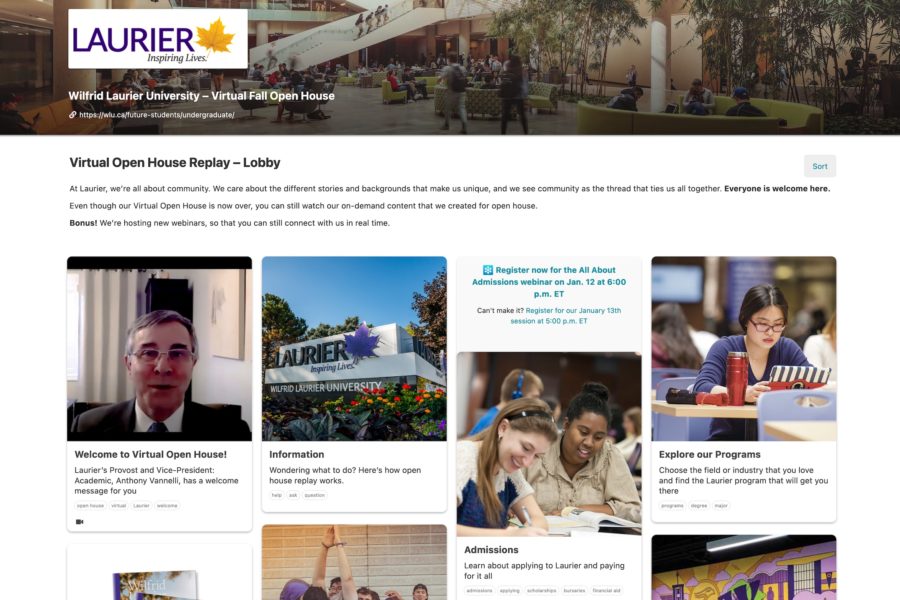The college degree is increasingly being seen as the new high school diploma. The college degree used to be seen as a differentiator in the job market, today it is the minimum requirement to get a foot in the door in the corporate world. This has created immense pressures for all students to further their education after high school. This pressure has reframed higher education as a rite of passage rather than an investment in the eyes of many students.
When you make an investment in anything, there are clear expectations as to a ROI. By definition, an investment is a process of investing money or resources with the expectation of profit or material results. If you invest in a stock, your goal is to see a measurable profitable return. What we are seeing now in higher education aren’t individuals who have a clear goal of seeing the return on their education investment, the goal is to pass the courses and get to graduation.
There Are Two Kinds of Student
We have had the opportunity to speak with thousands of students in classes in private career colleges, public colleges, and universities. The overwhelming majority of these students are only thinking as far as their next assignment deadline. They have lost perspective on the big picture. We have two classifications of students.
1. The degree focused student
Assignment/Exams -> Grades -> Credits -> Degree/Diploma
2. The employment focused student
Assignment/Exams -> Grades -> Credits -> Degree/Diploma -> Employment
It’s seemingly a small difference in approach to a student’s higher education aspirations, but there is a stark difference in the priorities and decisions made by these two kinds of students. The employment focused student understands that employment is the true prize of higher education, they take advantage of the career resources available to them, attend job fairs and networking events, find industry relevant mentors, follow the companies they want to work for, have explored the types of roles that interest them, and are very conscious about the evolution of their resume and personal brand. Recruiters perceive these students to have strong career self-awareness and are viewed as stronger candidates.
The degree focused student prioritizes studying and the activities that will allow them to simply get their degree, deferring career development to the tail end of their studies or even worse after graduation.
It should be no secret that the employment focused students look far better to employers and are far more likely to find relevant employment. The gap between these students is larger than you’d think.
The reason the vast majority of students are degree focused is that there is no expectation or criteria from most schools to be mindful of their employment. In most schools you can go from day 1 to graduation without stepping foot in a career centre, speaking to an employer, updating your resume, or networking with anyone within the industry you want to work in. The employment focused student is rare because they need to have the discipline and initiative to seek out employment related activities when most of their peers aren’t.
Degree Focused Approach Is Troublesome
To help illustrate why the approach of the degree focused students is troublesome, let’s take a look at a housing investment example. You are speaking with a close friend and mention that you are looking to rent your small cottage. He asks what you are going to charge and you tell him $1,000/month, he owns a respected home renovation business and tells you with about $5,000 in renovations you should be able to rent the house for $1500/month. Here are some rhetorical questions for you to consider:
- How would you determine whether or not to move forward with this?
- Is your focus going to be on getting the renovations completed?
- Is it important for your friend to organize a ceremony to acknowledge its completion and give you a document validating the work?
For most of us, when we look at opportunities through the lens of an investment we are much better at zoning in on ‘how do I get paid’. In the example above, you probably quickly deduce that $5000 dollars in renovation costs gets you $500 more per month, after 10 months you’ve broken even and moving forward you can pull in an additional $6000 per year. It sounds like a good deal if you can secure a renter at $1500/month, and that “if” is where the risk lies. Just paying the renovation cost and having it completed doesn’t entitle you to the increased rent amount. The onus is on you to rent the cottage at that higher price point and the entire investment relies on your ability to capture the value of the renovation by marketing its premium worth to potential renters.
This is exactly the process that happens in higher education. If you are degree focused, you are only focused on getting the renovation done, the renovator gets paid, but what about you? To answer that question, you need to become an employment focused student, this small change in mindset can be one of the most valuable and most impactful difference makers in your life. It can be the difference between getting a job at your dream company and having to live in your parents’ basement.




